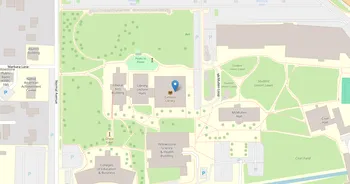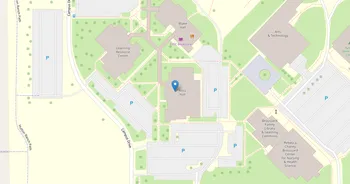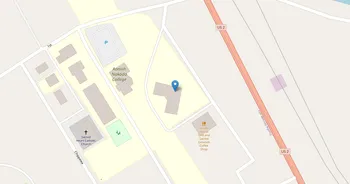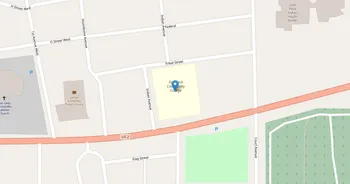Chief Dull Knife College (CDKC) : Overview, Courses, Scholarships & Rankings
About Chief Dull Knife College
Set in the homelands of the Northern Cheyenne Nation, Chief Dull Knife College is known for student-centered teaching that blends academic fundamentals with place-based learning. Faculty focus on clear writing, critical thinking, and practical skills across the arts, sciences, technology, and workforce fields. The campus offers a welcoming library, quiet study rooms, computer labs, and hands-on spaces, plus tutoring, advising, career coaching, and wellness support. Many events spotlight Cheyenne language, history, and artistry, so learning feels rooted and relevant.
Student life leans community-first. Clubs, service projects, and cultural gatherings make it easy to plug in, and the surrounding pine hills and wide-open sky invite hiking, photography, and plenty of fresh air. The atmosphere is close-knit and respectful, with a family-friendly vibe where staff know your name. Career preparation draws on ties with tribal programs, regional schools, healthcare, and land stewardship offices, and the college has a reputation for helping students build transfer-ready plans. Lame Deer adds strong community networks, local traditions, and opportunities to learn by doing. It's steady, grounded, and welcoming, with a sense of purpose you can feel.
Key Institutional Details
Contact & Profile
Academic & Institutional
Academic Programs & Fields of Study
Chief Dull Knife College (CDKC) offers 7 degree programs across 6 major academic fields, graduating approximately 30 students annually. The most popular fields by graduate volume are Education (2 programs, 12 graduates), Liberal Arts (1 programs, 12 graduates), Public Services (1 programs, 2 graduates), Health (1 programs, 2 graduates) and Psychology (1 programs, 1 graduates). Explore program details, award levels, and graduate demographics below.
Education (2 programs, 12 graduates)
Educational Sciences, Teaching Methods and Pedagogy
| Program Name | Graduates | Gender Distribution | Award Levels | CIP Code |
|---|---|---|---|---|
| General Education | 6 |
|
Associate's
|
13.0101 |
| Early Childhood Education | 6 |
|
Associate's
|
13.1210 |
Liberal Arts (1 programs, 12 graduates)
Liberal Arts Education, General Studies and Humanities
| Program Name | Graduates | Gender Distribution | Award Levels | CIP Code |
|---|---|---|---|---|
| General Studies | 12 |
|
Associate's
|
24.0102 |
Public Services (1 programs, 2 graduates)
Public Administration, Social Work and Community Services
| Program Name | Graduates | Gender Distribution | Award Levels | CIP Code |
|---|---|---|---|---|
| Social Work | 2 |
|
Associate's
|
44.0701 |
Health (1 programs, 2 graduates)
Healthcare Professions, Medical Sciences and Clinical Practice
| Program Name | Graduates | Gender Distribution | Award Levels | CIP Code |
|---|---|---|---|---|
| Substance Abuse Counseling | 2 |
|
Associate's
|
51.1501 |
Psychology (1 programs, 1 graduates)
Psychological Sciences, Mental Health and Behavioral Studies
| Program Name | Graduates | Gender Distribution | Award Levels | CIP Code |
|---|---|---|---|---|
| General Psychology | 1 |
|
Associate's
|
42.0101 |
Business (1 programs, 1 graduates)
Business Administration, Marketing and Entrepreneurship
| Program Name | Graduates | Gender Distribution | Award Levels | CIP Code |
|---|---|---|---|---|
| Business Administration and Management | 1 |
|
Associate's
|
52.0201 |
Tuition, Fees & Estimated Costs
Overview of tuition rates, housing, and other annual education expenses for undergraduate and graduate students
Financial Aid & Student Support
Summary of scholarships, grants, student loans, and financial aid statistics for undergraduate students
Student Success Metrics
Graduation rates and post-graduation earnings to help assess student outcomes and long-term value of education.
Loan Burden & Repayment Outcomes
Breakdown of loan repayment rates and student debt levels by income and dependency status.
Frequently Asked Questions
Find answers to the most common questions about Chief Dull Knife College (CDKC)
How much does it cost to attend Chief Dull Knife College (CDKC)?
The annual tuition at Chief Dull Knife College (CDKC) is $2,260 for in-state students. When including room and board, books, and other expenses, the total estimated cost is approximately $3,260 for in-state students. Additional costs include room and board $5,400 (off-campus) and books and supplies $1,000.
Data based on IPEDS program completions for 2022-2023 academic year. Tuition and cost estimates are approximate and may not include all fees, personal expenses, or transportation costs.
What academic programs and degree levels does Chief Dull Knife College offer?
Chief Dull Knife College (CDKC) offers 7 academic programs across 6 major fields of study, with available degree levels: Certificate (1-2 yrs), Associate's.
Most popular program areas include:
- Educational Sciences, Teaching Methods and Pedagogy (2 programs)
- Liberal Arts Education, General Studies and Humanities (1 programs)
- Public Administration, Social Work and Community Services (1 programs)
- Healthcare Professions, Medical Sciences and Clinical Practice (1 programs)
- Psychological Sciences, Mental Health and Behavioral Studies (1 programs)
Data based on IPEDS program completions for 2023-2024 academic year. Numbers reflect programs where students graduated, not all offered programs.
What financial aid and scholarships are available at Chief Dull Knife College?
Chief Dull Knife College (CDKC) provides financial aid to 5% of first-time, full-time students, with average grants of $3,437 and average loans of $0.
Average financial aid amounts by type:
- Pell grants: $3,215
- Institutional grants: $1,000
The university supports 9 students with grants and 0 students with loans annually.
Data based on IPEDS for 2022-2023 academic year. Financial aid amounts and percentages may vary by program, enrollment status, and individual circumstances.
What is the average salary for Chief Dull Knife College graduates?
Chief Dull Knife College (CDKC) graduates earn a median salary of $18,636 after 6 years and $20,073 after 10 years.
The salary range 10 years after graduation spans from $5,388 (25th percentile) to $42,721 (75th percentile).
Data based on IPEDS for 2022-2023 academic year. Salary data reflects graduates who received federal financial aid (approximately 60% of all graduates). Actual earnings may vary significantly based on program, location, and individual circumstances.
Related Universities




Found something useful? Help others discover it too! Share with friends, on social media, or save for later - every share helps someone find the information they need.